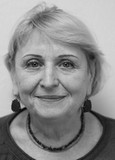Relationship of biological and pedagogical aspects in children’s early sports training
Ключевые слова:
morphofunctional and psychological characteristics, physical fitness, 6 years old, hockey, football, untrained children.Аннотация
Objective of the study was to identify features of the age-related development of some body systems of 6-year-old children, depending on physical activity.
Methods and structure of the study. Peculiarities of age-related development were studied as a marker of the influence of various physical activities in 6-year-old children. Contingent: hockey players (41 people, training experience 1,32±0,84 years), football players (19 people, training experience 1,79±0,79 years) and untrained children (17 people). The following were studied: total dimensions and proportions of the body of the limbs, labile components of body weight; abilities: psychomotor (tests: tapping, RDO, PZMR, attention, noise immunity), cognitive (visual, verbal, spatial-logical, analytical-synthetic thinking); motor (30 m run; shuttle run 3x10 m; running with alternation 3x10 m (smooth, attached alternating, back forward); standing long jump; grip strength). Stepwise discriminant analysis was used to analyze the data.
Results and conclusions. A low level of discrimination between groups of six-year-old children with different physical activity was revealed in the presence of traces of external influence, differentiating the contribution of various activity support systems to the differences between groups. The greatest difference between athletes and untrained children is inherent in cognitive development, which reflects the leading role of consciousness in the development of skills of various properties and characteristics of learning. Motor and psychomotor abilities, which differ in the manifestation of the strength of the nervous system and the quality of coordination, are consistent with the priority of the importance of the development of movement control structures in accordance with the characteristics of motor activity and learning. Morphofunctional development does not reflect the characteristics of motor activity. It is assumed that already at the very early stage of systematic sports activities, the influence of means and methods of preparation is noted, which requires taking into account the individual and age-related cognitive development of the child.
Библиографические ссылки
Abramova T.F., Nikitina T.M., Kochetkova N.I. Labilnyye komponenty massy tela – kriterii obshchey fizicheskoy podgotovlennosti i kontrolya tekushchey i dolgovremennoy adaptatsii k trenirovochnym nagruzkam [Labile components of body weight are criteria for general physical fitness and control of current and long-term adaptation to training loads]. Guidelines. Moscow: OOO «Skayprint» publ., 2013. 132 p.
Belopolskaya N.L. Isklyucheniye predmetov (Chetvertyy lishniy). Modifitsirovannaya psikhodiagnosticheskaya metodika [Elimination of items (Fourth odd). Modified psychodiagnostic technique]. Instructions for use. 3rd ed., ster. Moscow, 2009. 53 p.
Veraksa A.N. Individualnaya psikhologicheskaya diagnostika doshkolnika: dlya zanyatiy s detmi 5-7 let [Individual psychological diagnostics of a preschooler: for classes with children 5-7 years old]. Moscow: MOZAIKA-SINTEZ publ., 2014. 144 p.
Lokalova N.P. 120 urokov psikhologicheskogo razvitiya mladshikh shkolnikov (Psikhologicheskaya programma razvitiya kognitivnoy sfery uchashchikhsya I-IV klassov) [120 lessons on the psychological development of younger schoolchildren (Psychological program for the development of the cognitive sphere of students in grades I-IV)]. Moscow: «Os-89» publ., 2006. 165 p.
Mantrova I.N. Metodicheskiye rukovodstvo po psikhofiziologicheskoy i psikhologicheskoy diagnostike [Methodological guidelines for psychophysiological and psychological diagnostics]. Ivanovo: Neyrosoft publ., 2007. 211 p.
Rogov E.I. Nastolnaya kniga prakticheskogo psikhologa. Sistema raboty psikhologa s detmi raznogo vozrasta [Handbook for a practical psychologist. The system of work of a psychologist with children of different ages]. Practical guide. 4th ed., rev., sup. Part 1. Moscow: Yurayt publ., 2024. 412 p.
Federalnyye standarty sportivnoy podgotovki [Federal standards of sports training]. [Electronic resource]. Available at: https://www.minsport.gov.ru/sport/podgotovka/82/5502/ (date of access: 07.03.2024).
Fiziologiya rosta i razvitiya detey i podrostkov (teoreticheskiye i klinicheskiye voprosy) [Physiology of growth and development of children and adolescents (theoretical and clinical issues)]. Practical guide. A.A. Baranov, L.A. Shcheplyagina [ed.]. Moscow: GEOTAR-Media publ., 2006. 432 p.
Dapp Laura C. Physical activity and motor skills in children: A differentiated approach/ Laura C. Dapp, Venera Gashaj, Claudia M Roebers. Psychology of Sport and Exercise. 2021. Vol. 54 (2), 101916. Available at: https://dx.doi.org/10.1016/j.psychsport.2021.101916
Hohmann T. Motorische und kognitive Leistungsfähigkeit über die Lebensspanne / T. Hohmann, B. Holfelder,N. Schott. // Zeitschrift für Sportpsychologie. 2015. Vol. 20, No. 1. pp. 2-4. Available at: https://doi.org/10.1026/1612-5010/a000084
Mental Health in the Young Athlete. MS Xanthopoulos, T Benton, J Lewis, JA Case et al. Curr Psychiatry Rep. 2020. Vol. 22 (63). Available at: https://doi.org/10.1007/s11920-020-01185
Physical Activity, Screen Time, and Sleep Duration of Children Aged 6-9 Years in 25 Countries: An Analysis within the WHO European Childhood Obesity Surveillance Initiative (COSI) 2015-2017. S. Whiting, M. Buoncristiano, P. Gelius et al. Obesity Facts. 2021. Vol. 14(1). pp. 32-44. Available at: https://doi.org/10.1159/000511263

Дополнительные файлы
Опубликован
Как цитировать
Выпуск
Раздел
Лицензия

Это произведение доступно по лицензии Creative Commons «Attribution» («Атрибуция») 4.0 Всемирная.
